Starting Instrumental & Vocal Tuition
A guide for parents and guardians
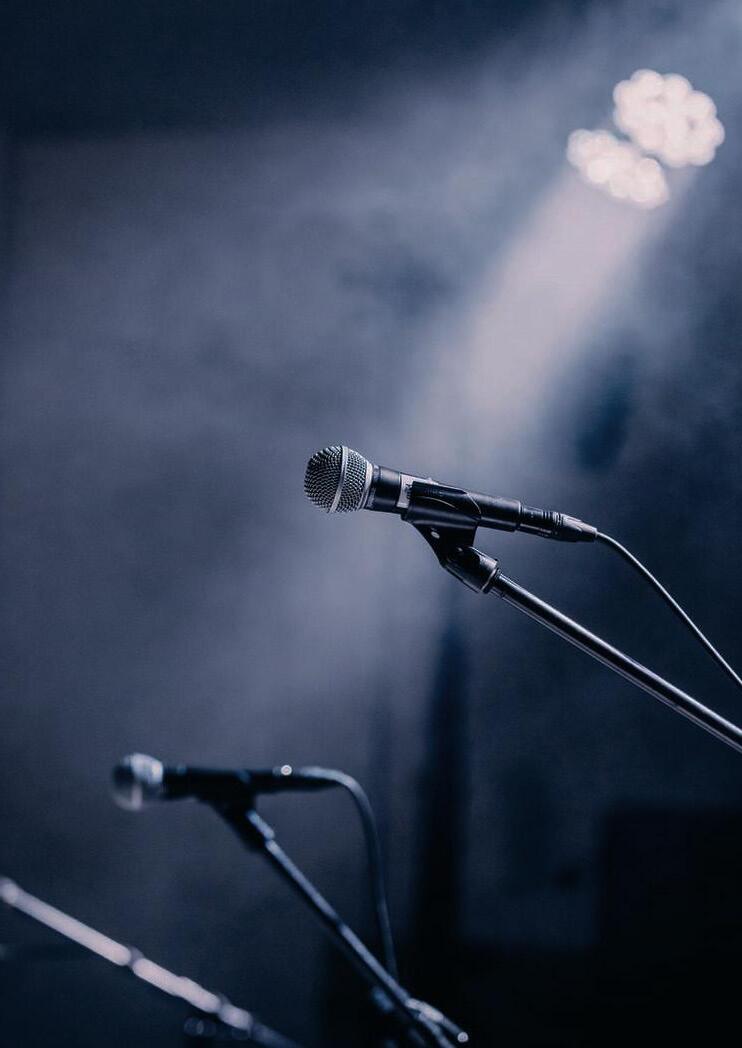




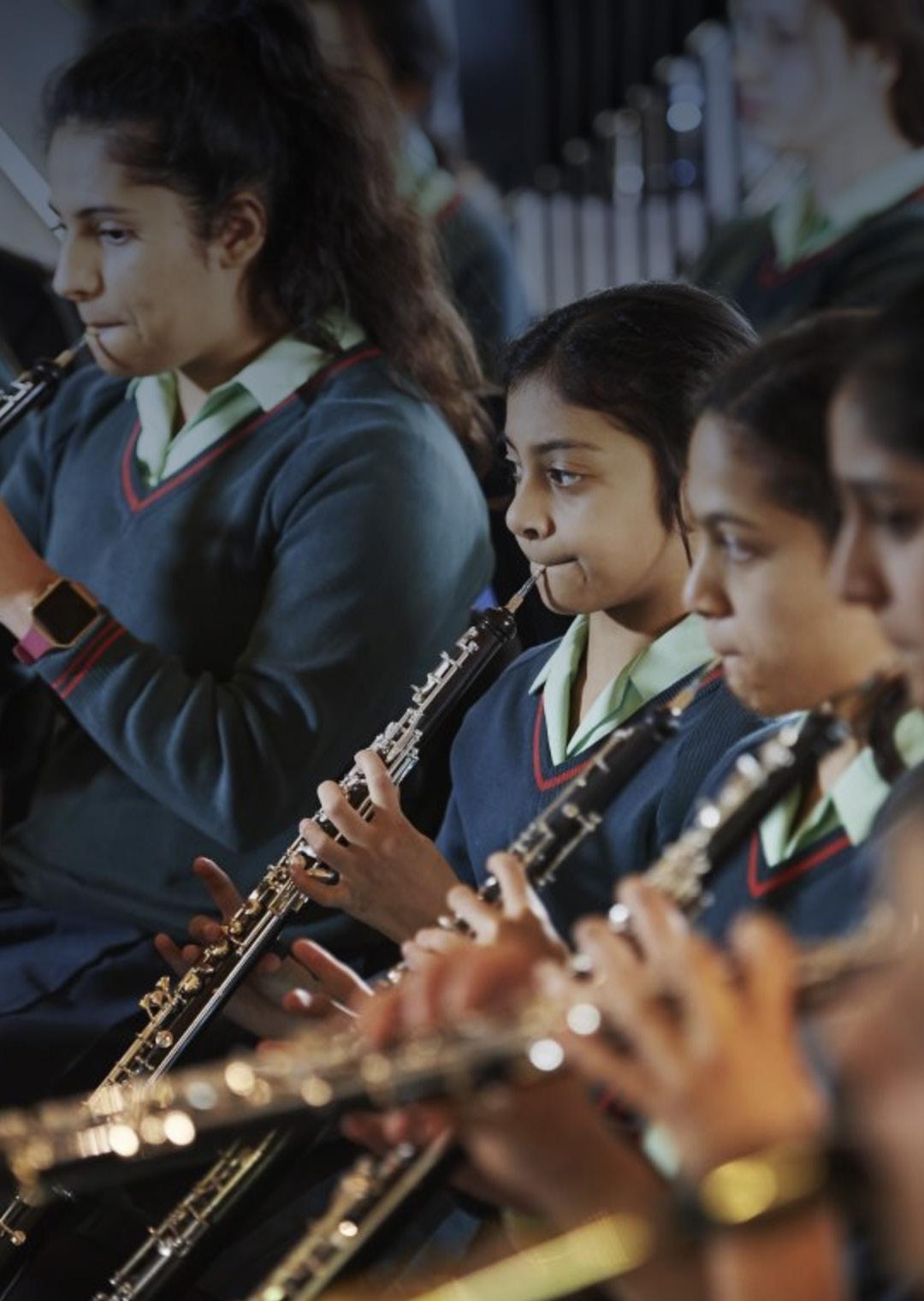
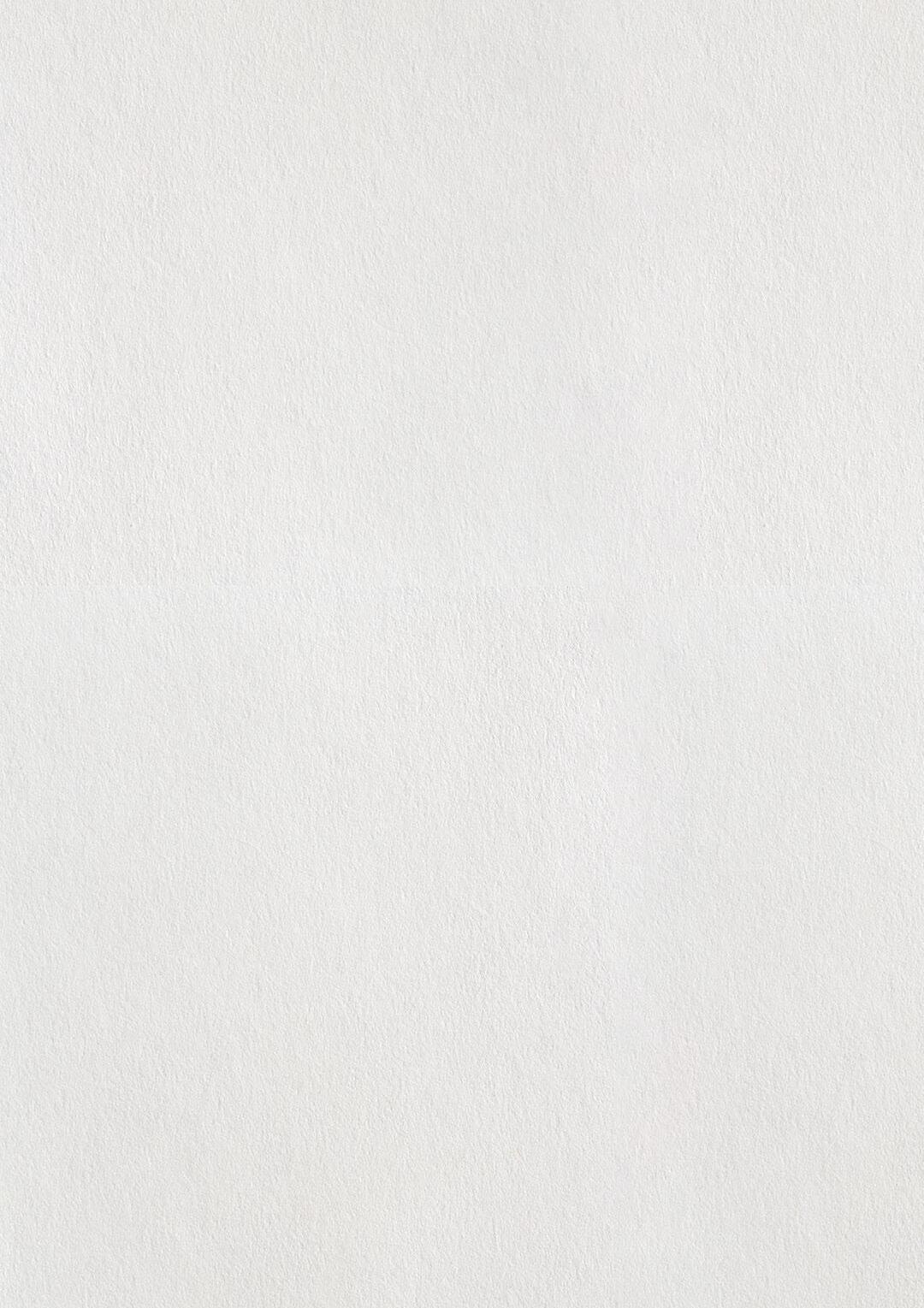
It is our hope that through learning a musical instrument or having singing lessons your child will gain enormous musical and social enjoyment, artistic and expressive satisfaction, and a real sense of achievement which will continue throughout their life. Although learning to sing/play a musical instrument requires commitment and hard work, there will be many occasions along the way to celebrate and enjoy.
To see the way students at Habs take music to their hearts and get such joy and fun out of playing and singing together is one of the highlights of working at the school. Opportunities to share music-making with others in the vast array of extra-curricular ensembles on offer at Habs naturally culminate in performance opportunities and concerts which are scheduled during the year.
The advantages for taking up a musical instrument at a young age have been well-researched over the years, but here are a few pointers from an article which appeared in the Daily Mail in 2010:
‘Learning to play an instrument has major advantages for a growing brain and should be a key part of school education says neuroscientist Professor Nina Kraus. She points out that there is strong evidence to show that music lessons help children improve their language skills…playing a musical instrument significantly enhances the brain’s sensitivity to speech sounds. The benefits could help all children including those with developmental challenges such as dyslexia and autism. ‘Music training is not only beneficial for processing music stimuli. We’ve found that years of music training may also improve how sounds are processed for language and emotion. … Now we know that music can fundamentally shape our sub-cortical sensory circuitry in ways that enhance everyday tasks, including reading and listening in noise.’
The decision to learn a musical instrument or to have singing lessons should be taken after careful consideration. This document aims to help you make that decision and to serve as a guide for both you and your child.

We are often asked to advise parents and pupils on what instrument to learn. Alas, there is no hard and fast answer to this question. One should not underestimate the ‘gut feeling’ that children may have towards specific instruments. It is important, however, that your child is aware of the sounds that particular instruments make and the appearance of musicians playing them as this will influence feelings towards choosing an instrument.
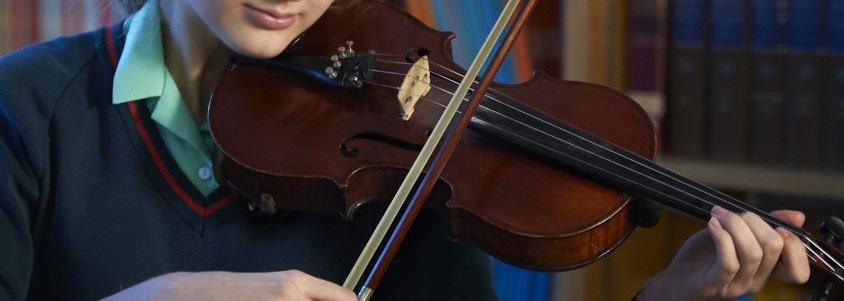
You can help this process by taking your child to an appropriate concert and also by encouraging them to take the opportunity to sit in on rehearsals of orchestras and bands at school and to watch and listen carefully. (Permission of the teacher concerned should be sought beforehand.)
It is important that you discuss these things with your child, as this joint approach will help you understand and support the learning process later.
Flute Violin Trombone
Oboe Viola Horn

Clarinet Cello Percussion
Bassoon Double Bass Singing
Saxophone Guitar Piano
Recorder Trumpet/Cornet Organ

Around 500 students have lessons in school and over 75% of girls play at least one instrument. Senior students may have lessons on two instruments. Junior students are welcome to choose no more than one instrument to learn (this includes singing).
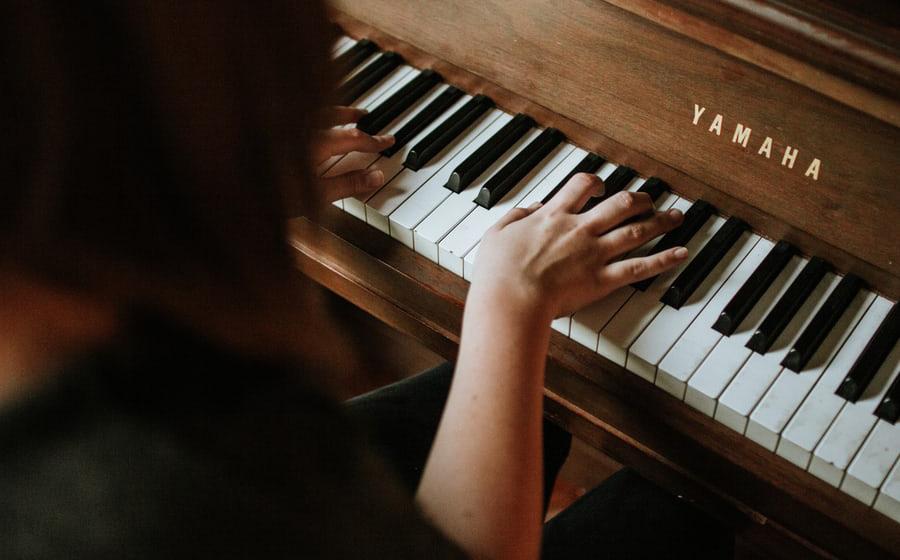

Thirty-minute lessons are delivered by our team of visiting music teachers (VMTs). With the exception of U5 and Sixth Form pupils, where lessons are timetabled in free periods or at lunch/before or after school, lessons are rotated as much as possible.
Please understand that the timetable requirements of the older students sitting public examinations must take priority in terms of the schedules of the visiting music teachers.
If your child has a lesson before or after school as part of the visiting music teacher’s rota, there are separate procedures in place in terms of access to the Music Department and picking up your child at the end of the lesson (from the Junior School reception area).
Lesson times change each week on a rota system resulting in your child not missing the same school lesson more than once or twice each half term. Some parents may be concerned about this aspect of learning an instrument at school, but experience has shown that students learn to organise themselves well and make up any missed work without problems.
Should your child’s class teacher have a concern about the impact of missing lesson time, you will be informed and all possible arrangements made to support the needs of your child, both in terms of continuing the instrument and classroom learning time.

Instrumental/vocal teachers use a Practice Record Book to note down the work to be covered between lessons. You should read this each week with your child, as this will help you support your child and the teacher.
You will be able to monitor your child’s progress weekly through the Practice Record Book and there may also be an opportunity for you to attend lessons when Music School Open Weeks are held. In addition to this, the visiting music teachers write a report at the end of each academic year.
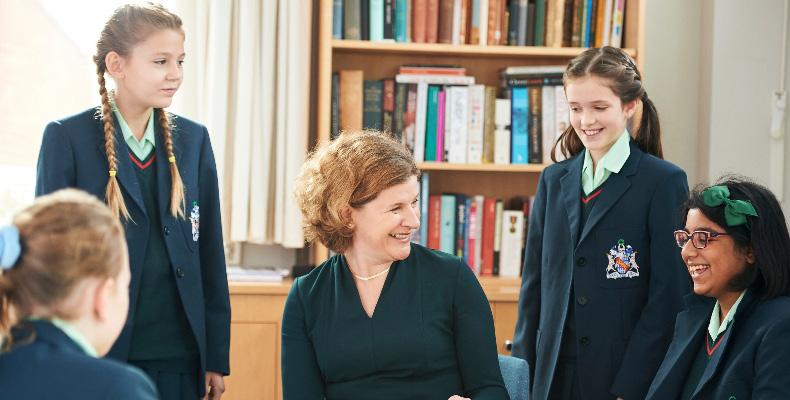
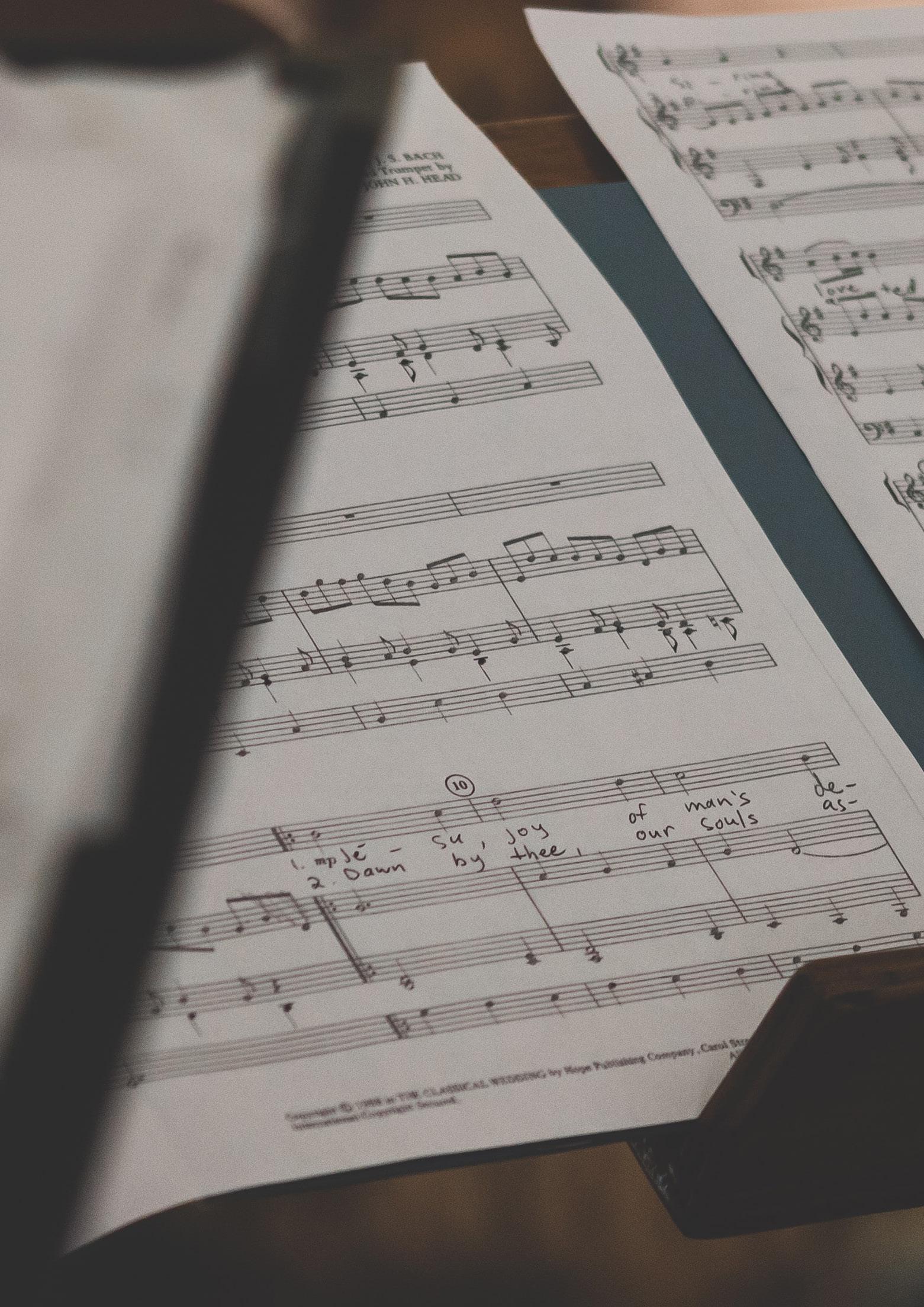

All applications for instrumental or vocal lessons should be directed to Mr Nugent (Music Technician, Senior School, tnugent@habsgirls.org.uk.)
The Director of Music, Ms Jenkins, will then allocate a visiting instrumental or vocal teacher, assuming a space is available. Where needed, a waiting list will be held.
Applications are welcome at any time of the year, but please be advised that the vast majority of lessons are allocated in June/July in advance of the start of the school year in September. This includes a large number of applications from students joining the school, so it is suggested you return any applications by Monday 6 June 2023.
Ms Jenkins will let you know if there is likely to be a delay in starting lessons e.g. if any instrument is oversubscribed, and will arrange for the individual visiting teacher to contact you directly with details regarding starting lessons.
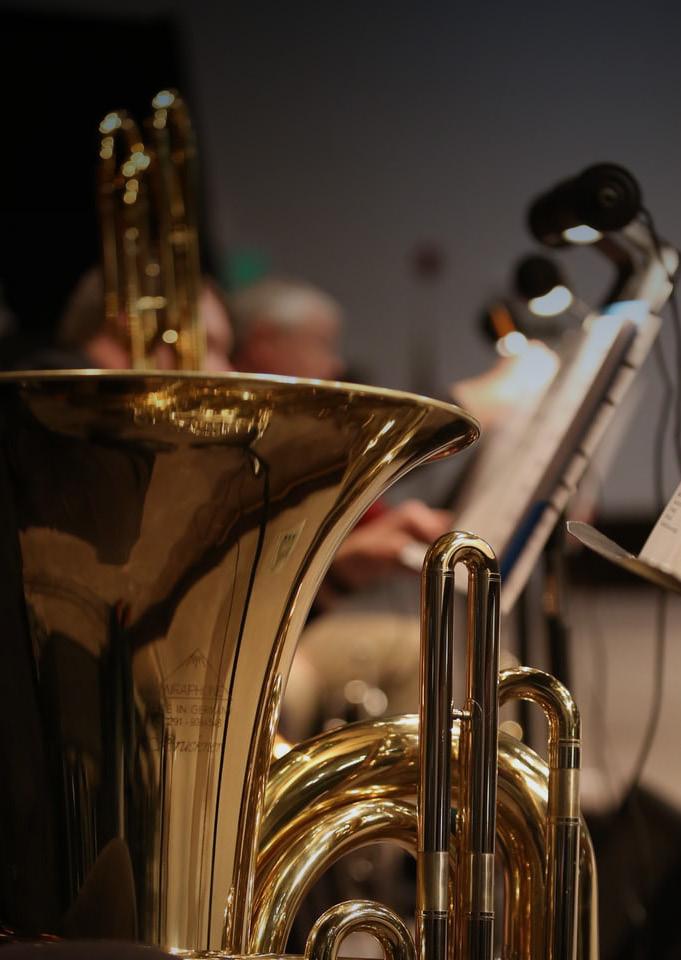

All instrumental teachers at Haberdashers’ Girls’ School are selfemployed. This means that an agreement must be made between you and the teacher directly. Once a request for lessons has been made and assuming that a space is available, the Director of Music will forward your application form to the appropriate teacher who will contact you to discuss and organise your child’s first lesson.
You will be issued with an agreement to sign and return to the teacher and an invoice for fees for the first series of 10 lessons. The current fees for Sept 2022 onwards are £250 for a series of 10 lessons of 30 minutes. (These fees are subject to review on an annual basis.)
The teacher undertakes to teach 30 lessons a year in series of 10 lessons (not always 10 per term due to the varying length of terms). You will be invoiced in at the beginning of each series of 10 lessons.
Please be sure to make prompt payments directly to the instrumental teacher as requested.
Notice to stop lessons must be given in writing to both the teacher and copied to the Director of Music according to the terms of the agreement between the visiting teacher and the parent.

At the time of updating this document, all students are back on site and receiving face-to-face lessons from most of the visiting music teachers. Should the national picture change in the future, the situation will be reviewed and the majority of individual lessons may then be provided by instrumental/vocal teachers remotely.
 MS M JENKINS DIRECTOR OF MUSIC
MS M JENKINS DIRECTOR OF MUSIC




